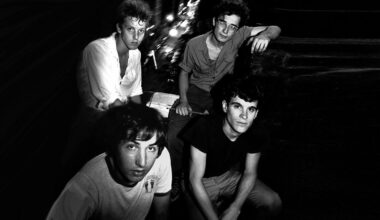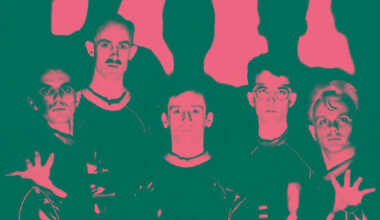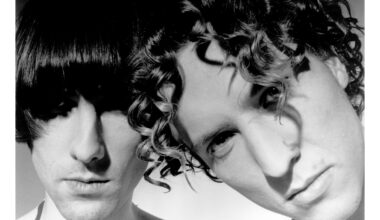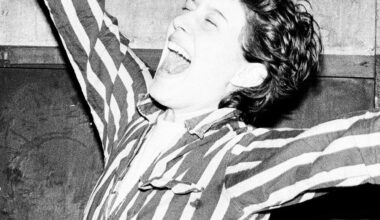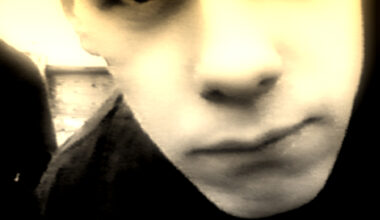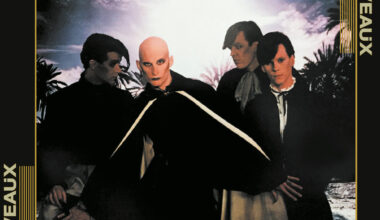Along with co-conspirator Fruitbat, Carter The Unstoppable Sex Machine’s Jim Bob tells how they penned ‘Sheriff Fatman’, their ode to slum landlords, granny farming and “awfulness everywhere”
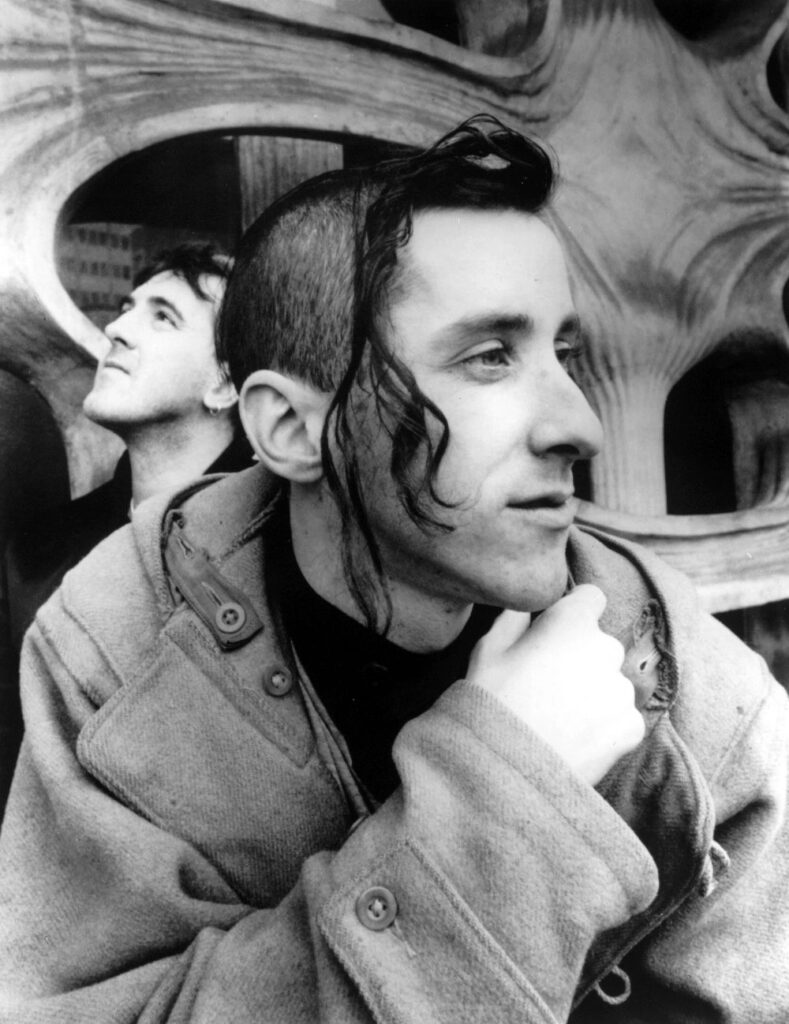
“It was 1989 and we’d both been on the dole for quite a while. I spent a lot of time round Fruitbat’s house, and all we did was write these songs. We were trying to promote the band and come up with ideas. We’d just got a manager and he hadn’t managed anybody before – he worked on a flower stall, but he was very much into mad schemes like putting stickers in phone boxes that appeared to be for prostitutes, but were actually adverts for the band, or numbers for record labels. We did really stupid things like that. It was just mischief – we thought we’d get a record deal out of it.
“There was one of these cards on the sleeve for the ‘Sheriff Fatman’ single – a sticker with a number on it, and I remember people rang it up, but it was just some woman’s house. We didn’t really think it through. We were just trying to annoy people, I think. God knows what that woman thought was happening – or who was calling her.
“A couple of things put us on to the song’s landlord theme. I saw a documentary about Nicholas van Hoogstraten on ‘Panorama’, and about the same time, there was this big story in the South London Press about this landlord that did a lot of things that were actually mentioned in the song. His name was Sherafatmand, which is where the title came from. He’s died since then, but he was just doing lots of dodgy stuff, like selling fake prescriptions, and he had people staying in places that were 10 to a room. So, it was mixing that together with this documentary. It just felt like I was surrounded by this awfulness, everywhere. We weren’t trying to change rental law, it was just reporting on it really.
“It was released not long after it was written in 1989, but there was an earlier version of the song called ‘Chuckles And Smiles’ which must have been written in about 1983 and was radically different. It was an acoustic home recording and had nothing to do with landlords. At some point, we kind of re-wrote it as Carter got going. The obvious bit that remained is the line ‘chuckles and smiles’, which is in the chorus. By the time we re-wrote it, though, we were listening to hip hop, so it was our kind of failed attempt to be the next Beastie Boys…
“When we were writing we’d be in Fruitbat’s bedsit with a really crappy keyboard and drum machine, just putting things on tape. We started recording stuff off the telly and adding that. It didn’t necessarily sound great, but we didn’t need to go into a massive studio and mic-up a drum kit and all the rest of it. We didn’t really need transport – we actually went to lots of gigs by bus.
“The first four Carter albums were recorded in what was essentially a garden shed in Mitcham. When we made our first demo tape, we just looked it up in the local paper and found the studio, and we ended up working with the same person, Simon Painter. He knew what he was doing more than we did, so we tended to use whatever was in the studio. The Korg M1 that we did the bassline on I ended up with eventually, but it was his. It was basic equipment by today’s standards – an Atari sequencer and stuff like that.
“I can’t remember where the marching sample came from. I’ve got the feeling it’s one of those things we got off a BBC sound effects record. There’s also a megaphone-y voice on it. The thing I remember about that, which probably gives some clue about the way we worked, was saying to Simon, ‘I want to get this kind of sound…’ and I basically squeezed my nose to emulate a megaphone. He said ‘Just do it like that!’, so that’s the megaphone sound – just me cupping my hand over my nose.
“A lot of songs were written very roughly on the guitar, and then we tended to start with something really basic, like a kick drum and snare, then the bassline. Then we’d put the guitars on and it would all make sense. With ‘Sheriff Fatman’ it was pretty different to anything we’d done before in that it was surprising how well it came out. We didn’t plan it, but it sounds almost deliberate that we were trying to create that
sort of thing.
“It sounds quite jubilant. I think at that time we were just really excited about the band and the way it felt like it was going. It was that feeling of invincibility that you get when you’re in a new band that you think is good and is going somewhere. You feel like you can do anything, and maybe that’s what comes through.
“It felt like an important record for us. I mean, no one bought it when it first came out. It wasn’t successful until the re-release in 1991, but it just felt like a strong single. Usually my experience of hearing myself on the radio is disappointing, but I remember thinking that one sounded really good – and it sounded good in a club, too.
“It’s also aged surprisingly well, really. It’s 30 years old, but it doesn’t sound it. Maybe, because it wasn’t like anything else and it still isn’t like anything else now, it stands the test of time. I mean, that’s my opinion – I’m sure other people will think it sounds really dated.”
Jim Bob’s latest book ‘Jim Bob From Carter: In The Shadow Of My Former Self’ is out via Cherry Red Books
